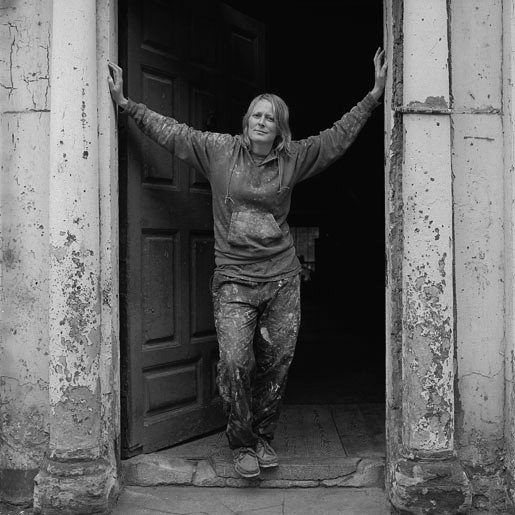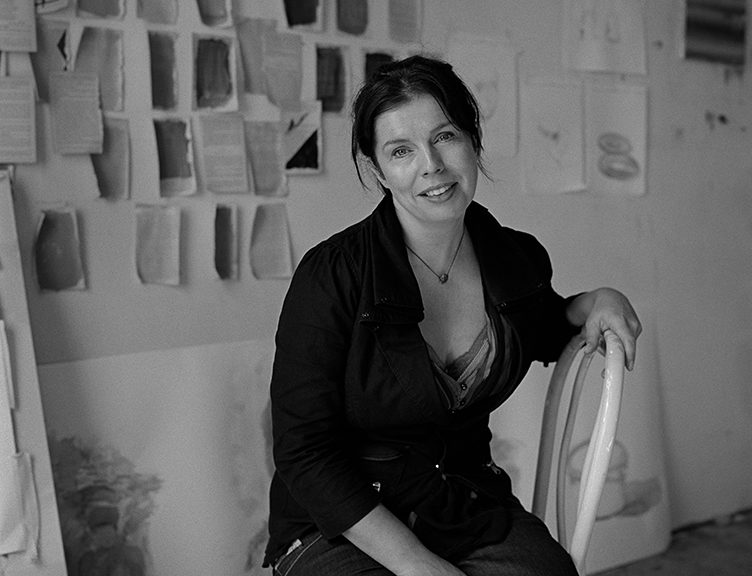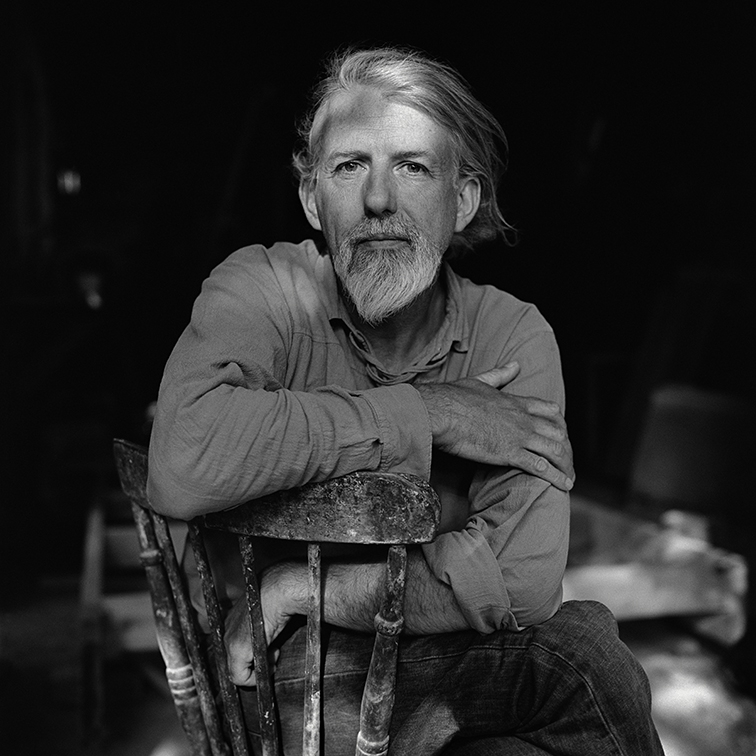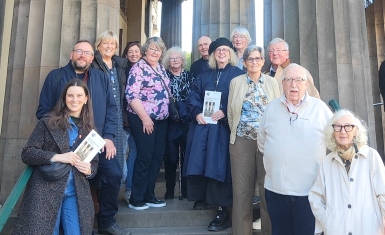A collective of contemporary artists and architects dedicated to the advancement of arts and culture in Ireland.
Academicians
Academicians
Today the Royal Hibernian Academy of Arts has a unique position as an independent artist-run community with peer-elected Academicians at the helm. Collectively, RHA member artists are the most important and diverse names in 21st-century Irish art.
Deeply involved in our day-to-day running and strategy, it is their combined decision-making that best supports practitioners through public exhibition, indispensable training and dedicated residency awards and studio bursaries.
Academician titles are awarded by an election and voting system, based on an individuals’ merit as a professionally active artist or architect in Ireland.
We have 30 Academicians, 14 Senior Academicians and 8 Associate Academicians presided over by the 25th President, Sinéad Ní Mhaonaigh PRHA. All Academicians are entitled to exhibit up to six works in the RHA Annual Exhibition and to show their work in the RHA Ashford Gallery. Many Academicians are also involved in teaching and the RHA School’s talk series and Masterclasses as part of the student programme.
Election Process
Nomination
Voting
Election
Nomination
Existing Academicians can nominate up to two new candidates for Associate titles annually – when a vacancy arises. There are a max. of 10 Associate Academicians at any one time. Nominations are added to a Candidate List (max of 90 names) until the following year. It is at this stage that the nominating Academician can replace one or both nominees with new candidates, or renew previous years’ nominations before all members vote. Nominations for the Honorary Council are presented by the Council and are ratified by the Assembly at the AGM in October.
Voting
All Academicians can vote for peers on the Candidate List who have been nominated for Associate titles at the annual Assembly in October or by postal vote. The two candidates with the most votes will go through to the Second Round. The second vote will take place at the same Assembly and each Academician will vote for either of the top two candidates that received the highest number of votes. The Academy Laws specify that there can be up to a maximum of 30 Full Academicians and 15 Senior Academicians.
Election
A candidate with the most votes will duly be elected an Associate Academician and can only become a Full Academician when a space becomes available. The newly elected Academician attends a meeting of Council to go through a short traditional ceremony, where the terms of obligation are read out. They then receive their medal and sign the Roll of Obligation, which includes the signatures of every Academician since our founding and receive their Diploma.
Academy Council
The executive function of the RHA is centralised on the Academy Council: it is our legal executive board. Made up of 7 Academicians and the Four Officers, the Council is a committee that is responsible for the direction and management of every major aspect of the Academy.
Various advisory groups report to Council on each area of the RHA’s activities and recommend policy.
The Officers and Council of the Royal Hibernian Academy of Arts are elected each year at the Academy’s AGM in October.
Officers may serve no more than five consecutive years and Members of the Council rotate every two years.
The Four Officers
The governance structure of the Academy consists of the Assembly, the Council, the Director and the staff of the Academy. These are supported by two advisory boards to the Council: the School Board and the Programme Board. The RHA also has an Honorary Membership to bring together eminent individuals from beyond the art world.
The Four Officers and Council of the RHA are elected each year at the Academy’s AGM in October.
Our Presidents are always elected by their fellow Academicians and rules dictate that Officers cannot serve for more than five consecutive years and Council Members rotate every two years.
Generally impartial, the President can summon the Council and General Assemblies, but only vote on matters when votes are tied. The President is the RHA’s formal representative and takes the lead on all fundraising efforts to secure our future.

The current President is Sinéad Ní Mhaonaigh PRHA. Sinéad was elected President in October 2025 after serving as Keeper during 2024. Sinéad Ní Mhaonaigh PRHA graduated in 2001 from Fine Art Painting at the Dublin Institute of Technology and is also a member of Aosdána.

The current Secretary is Andrew Folan RHA. Andrew was elected Secretary in October 2023. The Secretary is appointed to direct and oversee the work and output of the RHA, safeguarding its cultural signficance and operations, including all aspects of our administration. Since graduating from the Slade School of Fine Art, London in 1981 Andrew Folan has practised in print, photography and sculpture. Recent works have combined digital processes and print in multi-layered composite photo-montage.

Elected February 2026, Diana Copperwhite, RHA Keeper ensures we continue to deliver the highest standards of teaching and academic performance.
Diana Copperwhite RHA lives and works in Dublin. In her paintings, Copperwhite explores the relationship between colours, gestures, figuration, and representation, harmonizing different visual strategies on the canvas.

The current Treasurer is Michael Quane RHA. Michael was elected Treasurer in October 2025. The Treasurer is elected by ballot for a three-year term, normally from Academicians who have served a minimum of five years. The Treasurer acts as the formal representative of the Academicians on all matters concerning finance. Michael’s many public works are often in limestone or marble, and portray men and animals, frequently using the motif of a horse and rider.
More
Honorary Members (HRHA)
-
PROFESSOR OF HISTORY OF ART
Prof. John Turpin
-
PROFESSOR OF ANATOMY
Prof. Clive Lee
-
HON. MEMBER
Ron Bolger
-
HON. MEMBER
Brian Bourke
-
HON. MEMBER
Gareth Fisher PRSA
-
HON. MEMBER
James Coleman
-
HON. MEMBER
Catriona Crowe
-
HON. MEMBER
Brian Fallon
-
HON. MEMBER
Peter Fallon
-
HON. COUNCIL MEMBER
Brian Ferran
-
HON. MEMBER
Maurice Foley
-
HON. MEMBER
Loretta Glucksman
-
HON. MEMBER
Sir Nicholas Grimshaw CBE PPRA
-
HON. MEMBER
Garry Hynes
-
HON. MEMBER
Neil Jordan
-
HON. MEMBER
Charles Kenny
-
HON. MEMBER
Tony Kilduff
-
HON. MEMBER
Rebecca Salter PRA
-
HON. MEMBER
Louis Marcus
-
HON. MEMBER
Frank McGuinness
-
HON. MEMBER
Dr. Ian McKenzie Smith OBE PRSA
-
HON. MEMBER
Patrick J. Murphy
-
HON. MEMBER
Patrick T. Murphy
-
HON. MEMBER
Dr Eimear O’Connor
-
HON. MEMBER
Sheila Pratschke
-
HON. MEMBER
Hilary Pyle
-
HON. MEMBER
Lochlann Quinn
-
HON. MEMBER
Prof. Alistair Rowan
-
HON. MEMBER
Frances Ruane
-
HON. MEMBER
Colm Toibin
-
HON. MEMBER
Dr. Edward Walsh
-
HON. MEMBER
Dr. Barbara Dawson
-
HON. MEMBER
Brendan O’Mara
-
HON. MEMBER
Mary McCarthy
-
HON. MEMBER
Michael Corrigan
-
HON. MEMBER
Aidan Dunne
-
HON. MEMBER
Suzanne MacDougald
-
HON. MEMBER
Paula Meehan
-
HON. MEMBER
Theo Dorgan
-
HON. MEMBER
Robert Russell
-
HON. MEMBER
Margaret Irwin West
Our History
Through roving monarchs, famine, insurrections and Irish independence, the Royal Hibernian Academy of Arts has lived 200 years like an Olympic flame. With different artists at the helm, its story has often been volatile, instinctive and often imperfect – but always unabashedly human.
It was an original band of thirty or so who doggedly pursued a Charter of Incorporation to transform the landscape of Ireland’s arts and cultural sector.
Just as national academies around Europe had emerged as major arbiters of style and taste, this closely-knit group of artists were keen enter the fray and likewise steer the course of Western aesthetics.
While in its earliest years funding for the Academy was underwritten by the English monarchy, today the RHA operates as a charity, receiving the majority of its income from exhibitions, Friends and Benefactors.
